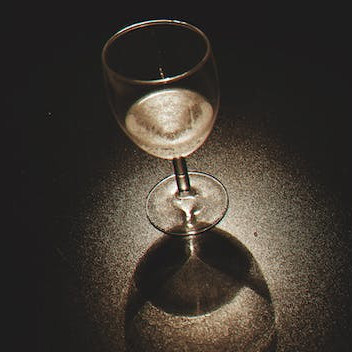
Can Alcohol Cause A UTI?

Alcohol does not directly cause urinary tract infections (UTIs), but heavy drinking can weaken the immune system and dehydrate the body, increasing the risk of UTIs. It’s important to maintain hydration and seek medical advice, especially if experiencing UTI symptoms or struggling with alcohol addiction.
Table of Contents:
A UTI is a bacterial infection that affects the urinary system, commonly the bladder. Alcohol consumption is a primary contributor to urinary tract infections (UTIs), which can severely impact individuals struggling with alcohol abuse. When consumed in excess, alcohol weakens and depletes the immune system, increasing the risk for these infections. The link between alcohol and urinary tract infection underscores the significance of seeking medical consultation if alcohol abuse is suspected as a factor.

This guide explores the correlation between alcohol and urinary tract infections and why seeking professional guidance is crucial. We will also answer the question of whether alcohol consumption can result in a urinary tract infection.
Elite Home Detox provides typical rehabilitation clinic services to the comfort of a patient’s home. Because each patient’s situation and demands are unique, our thorough treatment approach is personalized to the individual.
In-home alcohol addiction recovery is a modern option for today’s hectic, fast-paced lifestyles.
Understanding Urinary Tract Infections
UTIs occur when invading bacteria enter the urinary system, causing a bladder infection.
The most common cause for these infections is invasive bacteria, especially Escherichia coli (E. coli), which normally resides in the digestive system but may enter the urinary tract through improper hygiene or sexual activity.
Symptoms of UTIs include a strong, constant urge to urinate, a burning feeling during urination, cloudy or foul-smelling urine, fever or chills, and nausea. Seeking prompt medical attention is crucial if you are currently experiencing any symptoms or a urinary tract infection.
Several factors may increase the risk of developing a UTI, including:
- Sexual Activity: Intercourse can introduce bacteria into the urinary tract, increasing the risk of bladder infection. Alcohol consumption may lower inhibitions and contribute to poor decision-making, further elevating the risk of infection.
- Urinary Tract Abnormalities: Structural irregularity in the urinary tract, including kidney stones or urinary catheters, can create opportunities for bacteria to multiply and cause infection.
The Direct Link: Alcohol and UTI
Bacteria entering the urinary tract is the primary cause of UTIs, but alcohol can contribute indirectly by compromising the body’s defenses. Excessive alcohol consumption may further weaken the immune system, further exacerbating these conditions by dehydrating the body and compromising urinary function, making the body more susceptible to infections.
How Much Alcohol Increases UTI Risk?
The extent to which alcohol increases UTI risk can vary among individuals; however, chronic heavy drinking, often defined as consuming more than four drinks daily for men and three for women, can result in immune system suppression, potentially elevating the risk of infections.
Alcohol’s dehydrating effect may concentrate urine and hinder the body’s ability to flush out bacteria, creating an environment conducive to UTIs. Maintaining moderate alcohol consumption, typically one drink per day for women and up to two drinks per day for men, positively aligns with general health guidelines and may help mitigate potential risks.
Understanding these connections is essential for maintaining urinary tract health. If you are concerned about the potential link between alcohol and UTIs, consulting a healthcare professional is advisable for personalized advice and appropriate preventive measures.
Can I Drink Alcohol If I Have a UTI?
Healthcare professionals typically recommend abstaining from alcohol while taking antibiotics, which are commonly prescribed to treat UTIs. Drinking alcohol while undergoing antibiotic treatment can interfere with the medication’s effectiveness and may lead to increased side effects like dizziness or stomach upset.
Considerations for Alcohol and UTI Treatment
When dealing with UTI, it’s essential to consider the impact of alcohol during the therapy process. Coming to a thorough understanding of alcohol’s influence on urinary tract infections can be crucial for effective recovery from an infection.
Alcohol is a diuretic, leading to increased urine production and potential dehydration. Drinking water is recommended to counteract the dehydrating effects of alcohol.
UTIs are commonly treated with antibiotics. Healthcare providers often advise against alcohol consumption during antibiotic treatment due to its potential to interfere with the drug’s effectiveness while raising the risk of side effects.
If individuals choose to consume alcohol during UTI treatment, moderation is advised.
It’s crucial to consult healthcare professionals for personalized advice. Factors like current health levels, severity of the UTI, and prescribed medications should all be considered, and professionals can tailor recommendations based on individual circumstances.
Regardless of alcohol consumption, focusing on rest and hydration is paramount for recovery. Proper rest supports the immune system, and allowing the body to recover helps build up the resources to combat bacterial infections.
Conclusion
The urinary tract infection revolves around the potential impact of excessive alcohol consumption on the immune system and hydration levels. But can drinking cause a UTI? In short, no. Alcohol itself does not directly cause an infection; however, it may contribute to a raised susceptibility.
Chronic heavy drinking can severely compromise the immune system. Alcohol’s diuretic effect may lead to dehydration, which can create an environment conducive to urinary tract infections. Alcohol abuse can negatively impact general health but may also contribute to conditions that increase the risk of infections, including UTIs. Considering the broader implications of alcohol consumption on health, seeking assistance from healthcare providers and addiction specialists is essential for a comprehensive approach to well-being.
If you or someone you know is struggling with alcohol addiction, reaching out for professional support can make a major difference in promoting a healthier lifestyle.
In-Home Alcohol Addiction Recovery with Elite Home Detox
Elite Home Detox brings the services of a traditional rehabilitation clinic to the comfort of a patient’s home. Since every patient’s circumstances and needs are different, our comprehensive treatment plan is tailored to the individual.
In-home alcohol addiction recovery is a modern solution for the busy, fast-paced lifestyles of today.
Personalized attention
Unlike a traditional addiction rehabilitation clinic, where patients meet in groups, in-home rehab means that our patients get dedicated, one-on-one attention.
Elite Home Detox provides a 24/7 onsite medical professional to monitor the patient, make changes to the treatment plan as necessary, and answer any questions that the patient, friends, or family may have. We are with our patients every step of the way to ensure a safe and healthy recovery with long-lasting results.
Convenient and private
Both inpatient and outpatient clinics require patients to travel to their destination. This is not only costly, but it also requires a significant amount of the patient’s time. In-home addiction rehabilitation works with the patient’s schedule, minimizing disruptions while maximizing results.
Some people may find group therapy beneficial. However, since addiction recovery is an intense and involved process, many patients prefer discretion while rehabilitating. That’s why Elite Home Detox brings our services directly to our patients for unmatched convenience and privacy.
Comprehensive, quality care
From genetics to social environment, many factors can contribute to a person developing an addiction to alcohol. These same factors need to be addressed during alcohol addiction rehab for a successful and lasting recovery. From detox to counseling that helps patients develop healthy coping mechanisms, Elite Home Detox offers the same services and quality of care as traditional rehab clinics.
Our team is thoroughly trained in addiction recovery, and every program is overseen by our medical director to ensure quality care.


